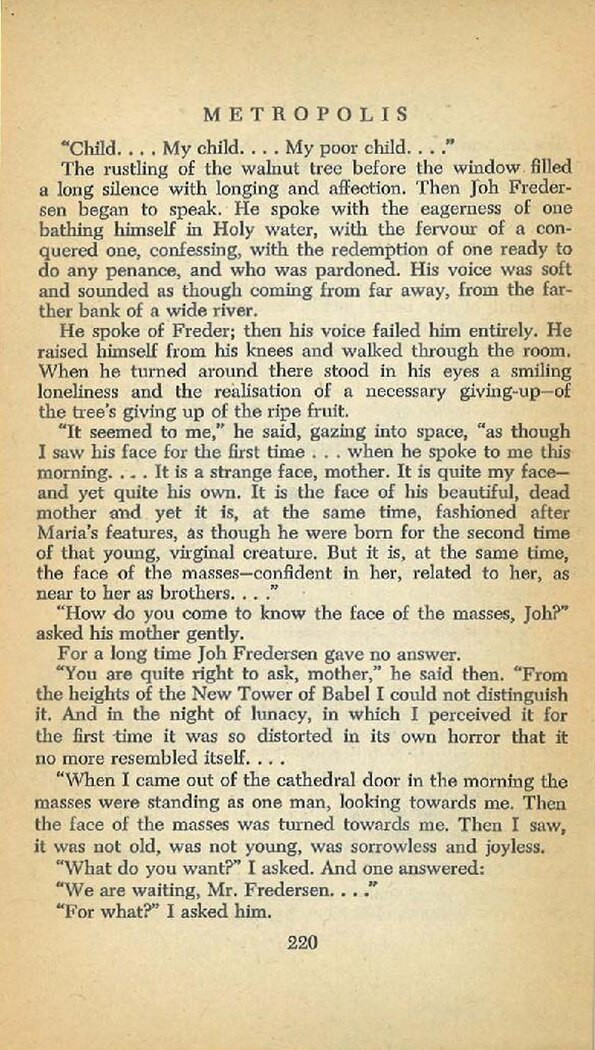METROPOLIS ·Child.... My child.... My poor child... ," The rustling of the walnut tree before the window. flned a long silence with longing and affection. Then Toh Fredersen began to speak. He spoke with the eagerness of one bathing himself in Holy water, with the fervour of a conquered one. confessing. with the redemption of one ready to do any penance. and who was pardoned. His voice was soft and sounded as though coming from far away. from the farther bank of a wide river. He spoke of Freder; then his voice failed him entirely. He raised himself from his knees and walked through the room. When he turned around there stood in his eyes a smiling loneliness and the realisation of a necessary giving-up-of the tree's giving up of the ripe fruit. "It seemed to me," he said, gazing into space. coas though I saw his face for the first time ... when he spoke to me this morning..... It is a strange face, mother. It is quite my faceand yet quite his own. It is the face of his beautiful, dead mother -and yet it is, at the same time, fashioned after Maria's features, as though he were bom for the second time of that young, virginal creature. But it is, at the same time, the face of the masses-confident in her, related to her, as near to her as brothers...." «How do you come to know the face of the masses, Joh?", asked his mother gently. For a long time Joh Fredersen gave no answer. "You are quite right to ask. mother," he said then. "From the heights of the New Tower of Babel I could not distinguish it. And in the night of lunacy, in which I perceived it for the first time it was so distorted in its own horror that it no more resembled itself.... "When I came out of the cathedral door in the morning the masses were standing as one man, looking towards me. Then the face of the masses was turned towards me. Then I saw. it was not old. was not young, was sorrowless and joyless. "What do you want?" I asked. And one answered: "We are waiting, Mr. Fredersen...•" "For what?" I asked him.
220
